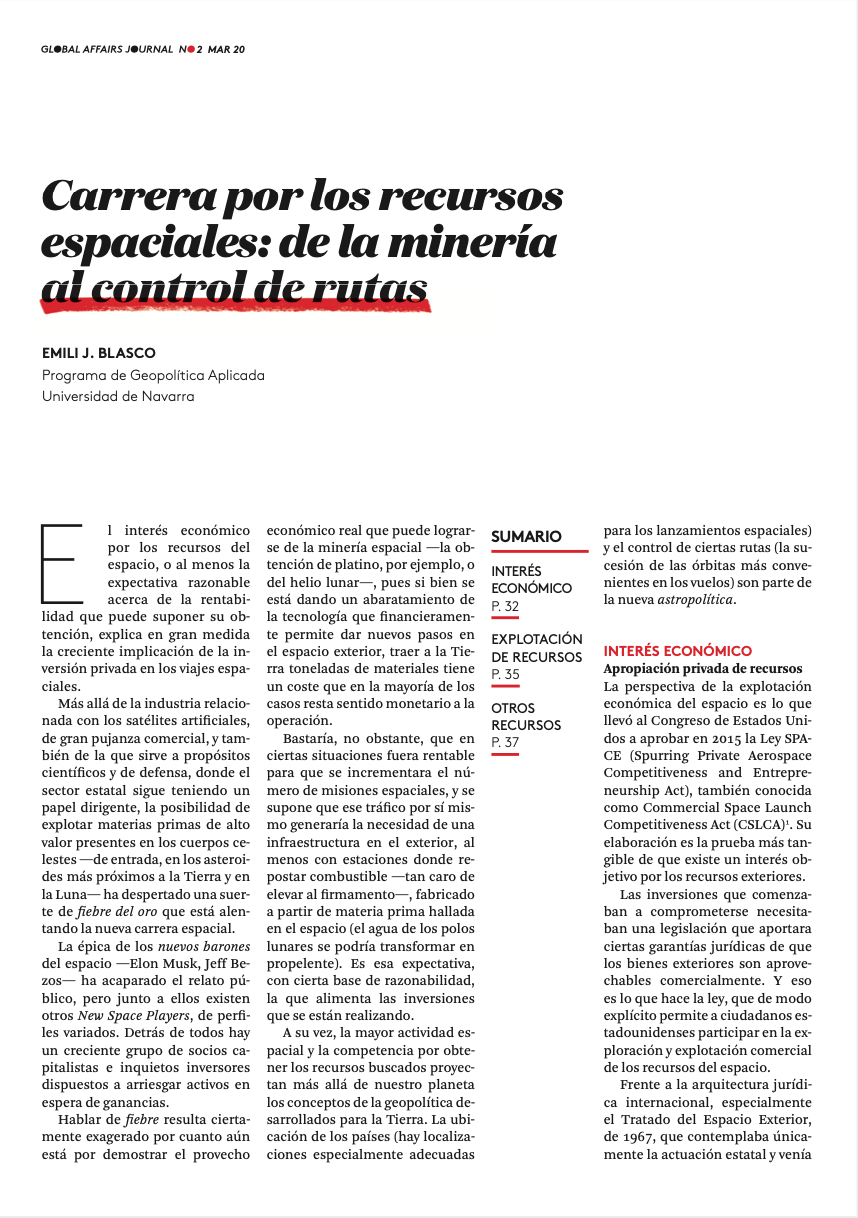![proposal for a lunar base to obtain helium, taken from ExplainingTheFuture.com [Christopher Barnatt]. proposal for a lunar base to obtain helium, taken from ExplainingTheFuture.com [Christopher Barnatt].](/documents/10174/16849987/gaj-foto-3.jpg)
▲ lunar base proposal for obtaining helium, taken from ExplainingTheFuture.com [Christopher Barnatt].
GLOBAL AFFAIRS JOURNAL / Emili J. Blasco
 [8-page document. download in PDF]
[8-page document. download in PDF]
INTRODUCTION
The economic interest in space resources, or at least the reasonable expectation about the profitability of obtaining them, explains to a large extent the growing involvement of private investment in space travel.
In addition to the commercially strong artificial satellite industry, as well as the scientific and defense industries, where the state sector continues to play a leading role, the possibility of exploiting high-value raw materials present on celestial bodies, such as entrance asteroids closest to Earth and the Moon, has awakened a kind of gold rush that is fueling the new degree program in space.
The epic of the new space barons -Elon Musk, Jeff Bezos- has monopolized the public narrative, but alongside them there are other New Space Players, with varied profiles. Behind all of them there is a growing group of capitalist partners and restless investors willing to risk assets in the expectation of profits.
To speak of a fever is certainly exaggerated because the real economic benefit that can be achieved from space mining - obtaining platinum, for example, or lunar helium - has yet to be demonstrated, because although the technology is becoming cheaper, which financially allows us to take new steps in outer space, bringing tons of materials to Earth has a cost that in most cases detracts from the monetary sense of the operation.
It would be enough, however, that in certain situations it would be profitable for the issue space missions to increase, and it is assumed that this traffic in itself would generate the need for an infrastructure abroad, at least with stations where to refuel fuel - so expensive to lift to the firmament - manufactured from raw subject found in space (the water of the lunar poles could be transformed into propellant). It is this expectation, with a certain basis of reasonableness, which feeds the investments that are being made.
In turn, the increased space activity and the skill to obtain the sought-after resources project beyond our planet the geopolitical concepts developed for the Earth. The location of countries (there are particularly suitable locations for space launches) and the control of certain routes (the succession of the most convenient orbits for flights) are part of the new astropolitics.